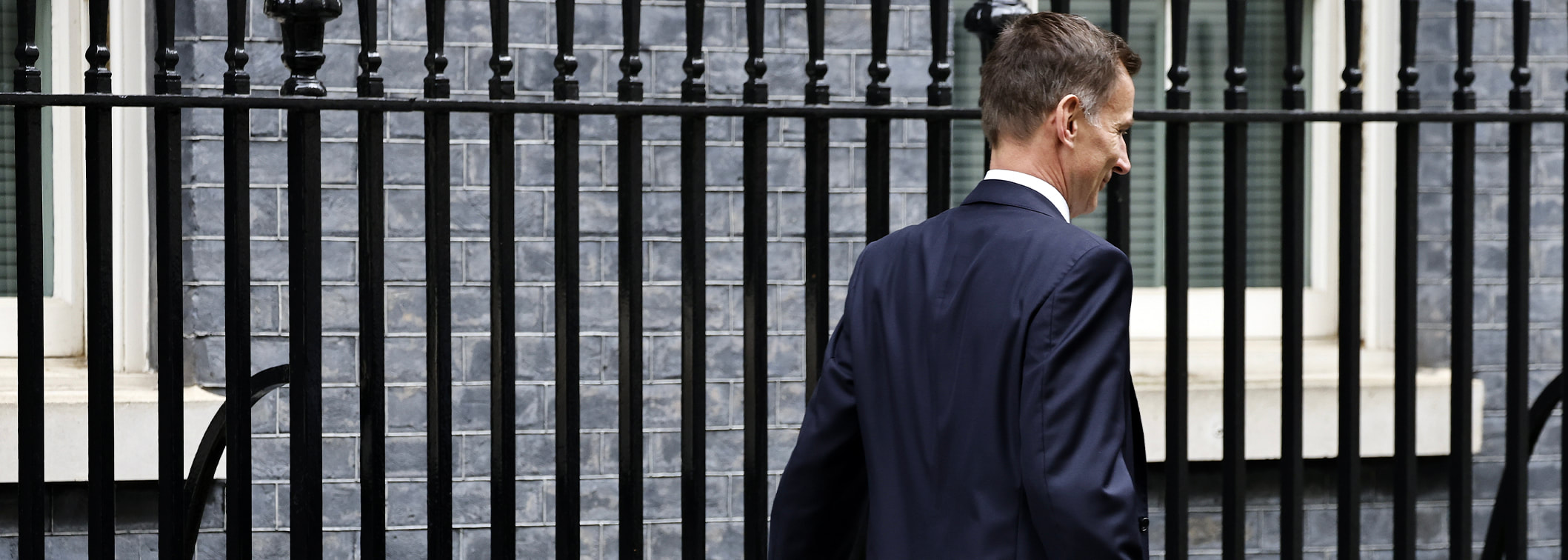|
A few weekends ago the Financial Times’s Money section published a special edition focused on private client wealth management. It included info on the past performance of specific major wealth managers, which is data that is usually difficult to obtain. This gives us an opportunity to compare our clients’ returns to those of our biggest peers - and we like what we see. This article is relevant for Non Doms who have been resident in the UK for less than 15 out of the past 20 tax years, intend to stay in the UK after April 2025 and have a significant potential inheritance tax liability. Investing involves risk that your capital goes down as well as up; you may get back less than you invested. The commentary below is not intended as a recommendation for you to personally buy or sell any of the investments mentioned nor to take any investment action whatsoever. Markets had a very strong finish to 2023 with both bonds and stocks rising >10% over November and December. This was driven primarily by inflation figures that continued to soften and corresponding signals from the US Federal Reserve that it would reduce interest rates in 2024. Cue the 'everything rally'. The question, as ever, is what happens next. Let’s be clear. This strategy is for the really quite wealthy. It makes sense to have at least £5 million of investable assets and probably more like in excess of £10 million of investable assets before a Family Investment Company (FIC) can make obvious sense. Additionally, little or no income/profits from the FIC should be required in the near term because FICs are the most tax efficient when the income and gains is retained and reinvested by the company over a long period of time (rather than paid out to the ‘shareholders’ early and on an ongoing basis). But if that’s the case then it really can make a lot sense... Investing involves the risk that your capital goes down as well as up; you may get back less than you invested. The commentary below is not intended as a recommendation for you to personally buy or sell any of the investments mentioned nor to take any investment action whatsoever. If the year ended today, the global stock market would be up about 12% in GBP and more than 15% in USD – a good year in almost anyone’s books. However, for many investors it probably doesn’t feel so good. The most frequently asked question from our younger, higher-earning clients right now is whether they should use capital to pay down their mortgage. The answer? It depends but generally if the mortgage amount is not too high and the borrower has sufficient income and capital to live their life then it often makes sense to keep the mortgage and invest the money instead. Pension Contributions vs Salary or Dividend If we assume that you are an additional rate taxpayer, you will pay 50-55% in tax when you take money out of your business as salary or a dividend. You will pay 33.75% in tax if you take it via your pension. This is largely because pension contributions made from your company are treated as an expense and so are not subject to corporation tax. It’s also because the first 25% of withdrawals from your pension is tax-free. Investing involves the risk that your capital goes down as well as up; you may get back less than you invested. The commentary below is not intended as a recommendation for you to personally buy or sell any of the investments mentioned nor to take any investment action whatsoever. Recent press reports have suggested that both major political parties are likely to change the rules around inheritance tax (IHT). It is widely rumoured that the Conservative Government will either reduce or eliminate IHT in the March budget. At the same time, a recent report in The Times suggested that, if elected, Labour would remove some popular exemptions to IHT including potentially the smaller companies exemption and the agricultural exemption. Therefore, it seems that regardless of who forms the next Government there is considerable downside risk to assets that target IHT mitigation. According to research by Micap (reported in CityWire), about £6.3 billion or 7.5% of the AIM market is held by IHT-focused products whilst an additional £8.8 billion is held in IHT products that hold private companies. That’s quite a large amount of investment for which the fundamental rationale may soon disappear. Investing involves the risk that your capital goes down as well as up; you may get back less than you invested. The commentary below is not intended as a recommendation for you to personally buy or sell any of the investments mentioned nor to take any investment action whatsoever. It was just over a year ago that I last wrote a ‘market update’. In many ways, not a whole lot has changed since then. In short, the relatively positive view we expressed in Sept 2022 has proved to be correct. So what happens next?! There are principally three ways that family wealth erodes over time: Spending, Inflation & Taxes Here's what you can do about them. |
Content Hub
|
Tindle Wealth Management Limited is authorised and regulated by the Financial Conduct Authority (FCA number 826467).
Tindle Wealth Management Limited is registered in England, Companies House number 10937225; our registered address is 1 The Sanctuary, London, SW1P 3JT. Our VAT number is 299894113.
The Financial Ombudsman Service is available to address individual complaints that clients and financial services firms are not able to resolve themselves. To contact the Financial Ombudsman Service you may visit www.financial-ombudsman.org.uk.
Tindle Wealth Management Limited is registered in England, Companies House number 10937225; our registered address is 1 The Sanctuary, London, SW1P 3JT. Our VAT number is 299894113.
The Financial Ombudsman Service is available to address individual complaints that clients and financial services firms are not able to resolve themselves. To contact the Financial Ombudsman Service you may visit www.financial-ombudsman.org.uk.










